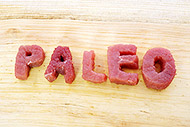
What happens when I eat a low-carb diet?
Carbohydrates are a major fuel source for exercising muscles, the brain, and the central nervous system. When you drastically lower your carb intake, your body lacks the glucose necessary to produce energy. Without adequate carbohydrates, the body enters a state of ketosis where it begins to burn its own fat for fuel. This may sound appealing at first, but the process also produces ketones, a byproduct of breaking down fat stores. Ketones have been linked to gout, kidney stones, and kidney disease.
How will a low-carb diet affect my exercise?
The side effects of ketone production include nausea, headache, and mental fatigue, which may disrupt your exercise routine. Research results are mixed from studies analyzing a low-carbohydrate diet, exercise, and fatigue. A study published in the Journal of the American Dietetic Association found that a diet low enough in carbohydrates to cause ketosis resulted in increased fatigue in untrained, overweight adults. The study suggested that this could lead to a reduced desire to exercise. In athletes, however, studies have shown that after a two to four-week adaptation to ketosis, exercise performance can improve.
Should I eat a low-carb diet?
The goal of nutritious eating and exercise should be to improve health without unnecessary dangers. The build-up of ketones in the body is not without risks, and it is especially dangerous to those with diabetes. Most health professionals agree that carbohydrates are needed in the diet to adequately fuel the body.
According to Mayo Clinic, daily diets with fewer than 20 grams of carbohydrates can cause ketosis. Consuming 50 to 100 grams of carbohydrates per day helps prevent it.
Additional Information
To learn more about carbohydrates, please visit our carbohydrate page in our nutrient resources.



 3 Healthy Lunches for Your Work Week
3 Healthy Lunches for Your Work Week
 5 Tips for Stretching Your Budget for Healthy Food
5 Tips for Stretching Your Budget for Healthy Food
 Best Ways to Reduce Added Sugar
Best Ways to Reduce Added Sugar
 Healthy Tips to Lighten Up Picnic Foods
Healthy Tips to Lighten Up Picnic Foods
 Do You Need to Drink Milk?
Do You Need to Drink Milk?
 Tips to Keep Track of Water Intake
Tips to Keep Track of Water Intake
 What Is a Paleo Diet?
What Is a Paleo Diet?
 Eating to Build Muscle
Eating to Build Muscle

 Pinterest
Pinterest RSS Feed
RSS Feed